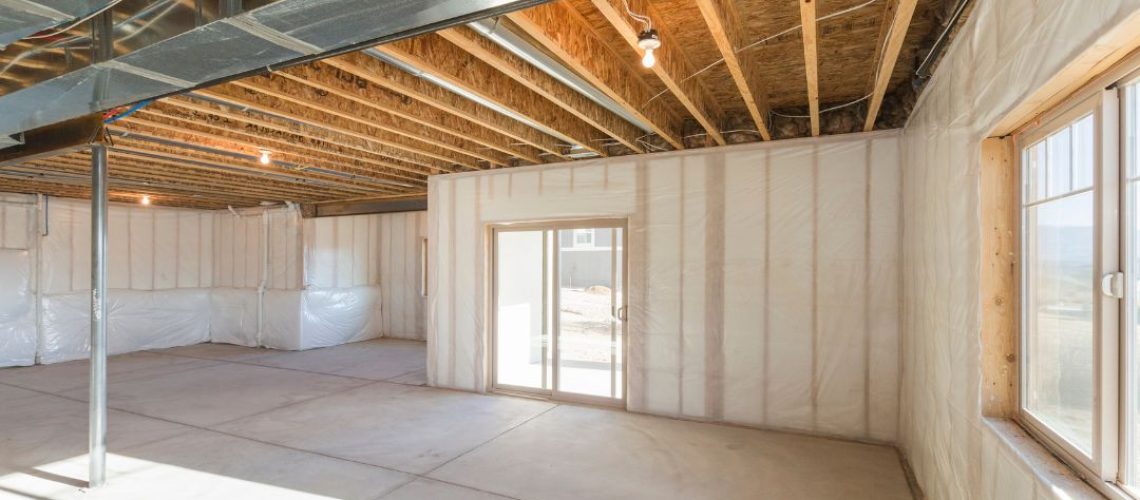Exploring the Benefits of Spray Foam Insulation for Homes and Businesses
When it comes to insulating a home or commercial building, there are many options available. However, few are as effective as spray foam insulation. Spray foam is an innovative insulation solution that is quickly gaining popularity due to its many benefits, including energy efficiency, improved indoor air quality, and enhanced comfort.
In this blog post, we’ll take a closer look at spray foam insulation and its benefits. We’ll explore how spray foam insulation works, the different types of spray foam insulation available, and how it can save you money on energy bills. We’ll also discuss the advantages of spray foam insulation for indoor air quality, soundproofing, and moisture control.
What is Spray Foam Insulation?
Spray foam insulation is a type of insulation made from two components, polyurethane and isocyanate. When these two components are mixed together, they create a foam that expands and hardens, forming an airtight barrier that can be used to insulate walls, ceilings, and other surfaces.
One of the key advantages of spray foam insulation is its ability to expand and fill in gaps and crevices, creating a tight seal that prevents air from escaping. This makes spray foam insulation a highly effective solution for energy efficiency, as it can reduce the amount of energy needed to heat or cool a building.
Types of Spray Foam Insulation
There are two main types of spray foam insulation: open-cell foam and closed-cell foam. Each has its own advantages and disadvantages, and the choice between the two will depend on the specific needs of your project.
Open-cell foam is a softer, more flexible foam that has a lower density than closed-cell foam. It is typically used for interior applications, such as walls and ceilings, and is a more cost-effective option than closed-cell foam. Open-cell foam is also a good choice for soundproofing, as it can absorb sound waves and reduce noise.
Closed-cell foam, on the other hand, is a denser, more rigid foam that provides a higher level of insulation. It is often used for exterior applications, such as roofs and walls, as it is better at repelling water and moisture. Closed-cell foam is also a good choice for strengthening a building’s structure, as it can add structural integrity to walls and roofs.
Benefits of Spray Foam Insulation
Energy Efficiency
One of the main benefits of spray foam insulation is its ability to improve energy efficiency. By creating an airtight seal, spray foam insulation can prevent air from escaping or entering a building, which can reduce the amount of energy needed to heat or cool the space. This, in turn, can lead to significant savings on energy bills over time.
Improved Indoor Air Quality
Spray foam insulation can also improve indoor air quality by preventing allergens, pollen, and dust from entering a building. Because spray foam insulation creates an airtight seal, it can prevent air from leaking in through cracks and gaps, which can reduce the amount of pollutants that enter a building.
Soundproofing
Spray foam insulation can also be used for soundproofing. Open-cell foam, in particular, is an effective sound absorber, as it can absorb sound waves and reduce noise. This makes it a good choice for homes or buildings that are located near busy streets, airports, or other sources of noise.
Moisture Control
Another advantage of spray foam insulation is its ability to control moisture. Closed-cell foam, in particular, is effective at repelling water and preventing moisture from entering a building. This can help prevent mold and mildew from forming, which can be a health hazard.
Enhanced Comfort
Finally, spray foam insulation can enhance the overall comfort of a building. By creating an airtight seal, spray foam insulation can prevent drafts and keep indoor temperatures consistent, which can make a space more comfortable to live or work in. Additionally, spray foam insulation can improve the structural integrity of a building, making it more resistant to wind and weather damage.
Cost Savings
While the initial cost of spray foam insulation may be higher than other types of insulation, it can lead to significant cost savings over time. Because spray foam insulation is so effective at reducing energy usage, it can help lower monthly energy bills, which can offset the initial investment in the insulation. Additionally, spray foam insulation can increase the resale value of a home or building, making it a smart long-term investment.
Installation Process
The installation process for spray foam insulation can vary depending on the type of foam being used and the specific needs of the project. Generally, the process involves spraying the foam onto the desired surface using a special spraying tool. The foam then expands and hardens, creating an airtight seal.
It is important to note that the installation of spray foam insulation should be performed by a professional contractor. The installation process can be complex and requires specialized equipment and training to ensure that the insulation is applied correctly and safely.
Conclusion
Spray foam insulation is an innovative insulation solution that offers many benefits for homes and businesses. From improving energy efficiency and indoor air quality to enhancing comfort and soundproofing, spray foam insulation is a versatile and effective solution for a variety of insulation needs.


